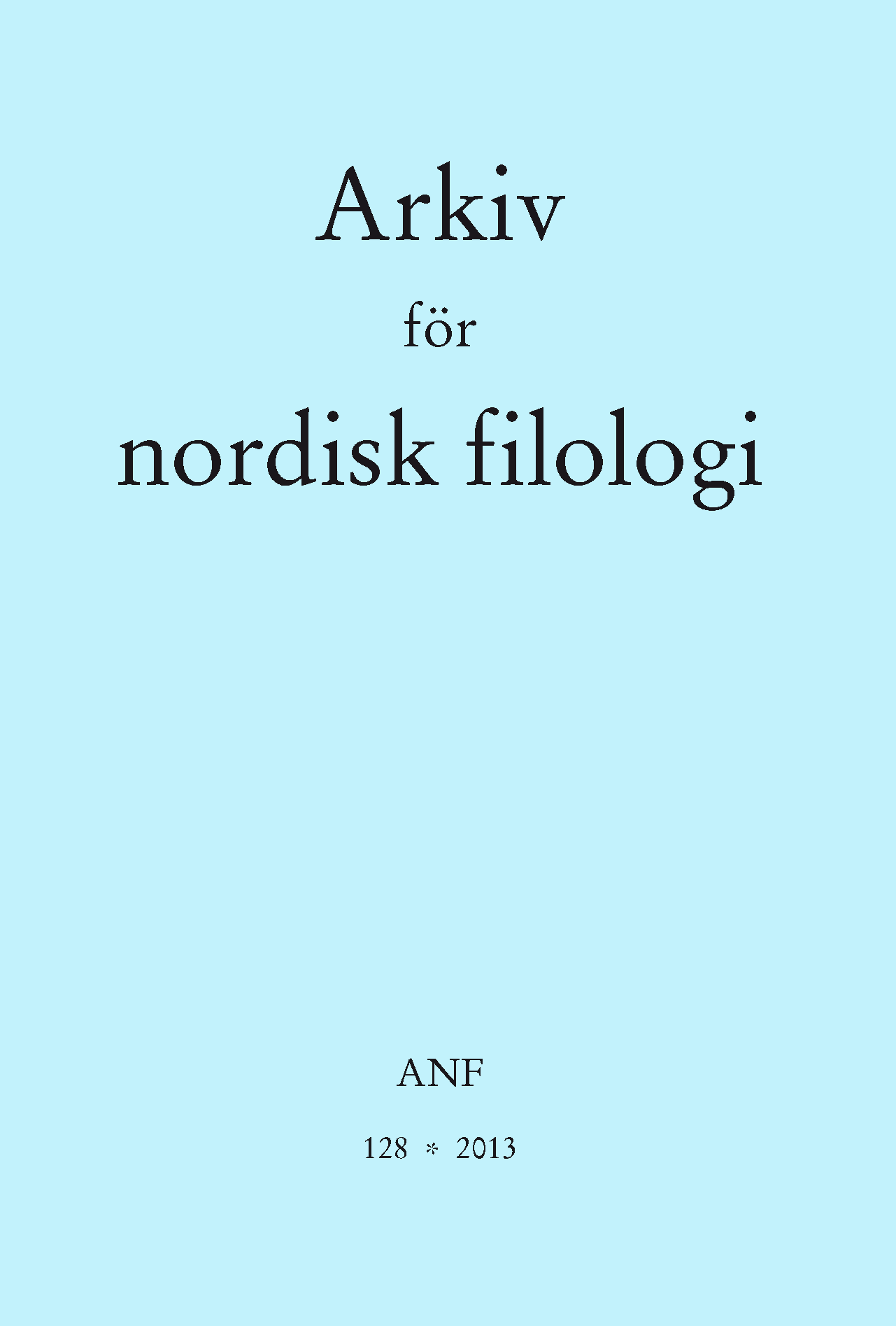Equivocal Land Claims in Guta saga and Tochmarc Étaíne
A Neglected Norse-Irish Analogue
Abstract
The Old Norse Guta saga contains an interesting episode in which the Byzantine emperor is tricked by a group of Gotlanders into granting settlement rights. The unwitting emperor initially seeks to give the Gotlanders permission to stay in his realm for only a month, but is later informed that the phrase “for the waxing and waning” actually means “for ever and ever”. As a result, the emperor is left no legal recourse for the removal of the Gotlanders. In the most recent edition of Guta saga (1999), Christine Peel identifies many of the oral and written source traditions that inform the narrative, but when it comes to the duping of the emperor, the editor is forced to concede that, “No close parallels to this story have come to light”. Peel goes on to discuss numerous land claiming tricks that appear in Norse and Middle English narratives, but fails to consider the Irish material as a possible source for analogues. For those familiar with medieval Irish literature, the tricking of the
emperor will doubtlessly call to mind similar deceptions involving equivocal language in Tochmarc Étaíne and other narratives. This paper explores the possible connections between Guta saga and its Irish analogues as well as reassesses some of the possible implications for research methodologies and the cultural exchange between Ireland and continental Scandinavia.


